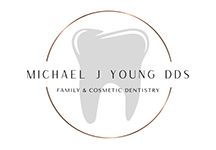If you have a dental emergency, your head is spinning with questions, like, “Heat or ice for toothache?” “How can I ease my discomfort?” And, most importantly, “Will my tooth be ok?” Dr. Michael Young understands the stress that a dental emergency can cause. He offers complete emergency care and can guide you in caring for your tooth even before you come into the office.
Read on for some answers to common questions about toothaches and other dental emergencies. Still have questions? Contact us today to speak to a member of our team or to schedule urgent services.
Ice or heat for toothache?
Whether you have a dull, throbbing ache or a short, sharp pain, using ice packs can bring significant relief. Avoid the temptation to chew on ice, however, as this can damage your tooth and make the pain worse. While ice is better at reducing oral inflammation, rising with warm salt water can also help.
If your pain does not go away in a day or two, you should make an appointment with a dentist.
If I have a toothache, does that mean I definitely have a cavity?
A toothache does not necessarily indicate a cavity, although decay is a common cause of dental pain. According to the American Dental Association®, a sharp, shooting pain may be caused by a cavity or by a cracked or chipped tooth, which has left the root exposed. A dull, throbbing pain is likely the result of an infection, although it could also arise because of damage to the enamel.
The appropriate treatment for your toothache will depend on its underlying cause.
Can I take medicine for a toothache?
Nonsteroidal anti-inflammatories (NSAIDs) are safe to take for a toothache. These include acetaminophen, aspirin, and ibuprofen. Be sure to follow all dosage instructions.
In the past, dental professionals recommended applying a topical pain reliever containing benzocaine. However, these medications can cause rare but serious side effects, so you should speak to your dentist before use.
What should I do with a knocked out tooth?
The American Association of Endodontists reports that if you act quickly (within 30 minutes), it may be possible to replace a knocked out tooth. For the best chances of saving your tooth:
- Carefully pick it up by the crown, not the root.
- Gently wash off the tooth to remove any dirt or debris.
- Put the tooth back in the socket and keep it in place by gently biting down.
- Keep the tooth moist. If you can’t put it back in the socket, store it in milk or keep it tucked in your cheek.
- Call a dentist immediately to be seen within a half hour.
Of course, even when you get into the dentist right away, it’s not always possible to save knocked out teeth. Your dentist can suggest an appropriate restorative option, such as a bridge or dental implant.
Can you replace my filling if it comes out?
If you lose a filling, your dentist will provide a new one. Dr. Young proudly offers biocompatible composite resin fillings, which are both durable and lifelike. With an array of shades available, you will receive a filling that is a near-perfect match to your teeth.
In some cases, you may require alternative treatment for a lost filling. For example, if your filling came out due to new decay or dental damage, you may need root canal therapy or a dental crown to fully restore the function of your tooth.
Contact Us for Emergency Dental Care
When you are suffering a dental emergency, it is essential that you receive treatment as soon as possible. Contact our office online or give us a call at 337-237-6453. We have locations in both Lafayette and Delcambre, and we proudly serve patients from across the area.



